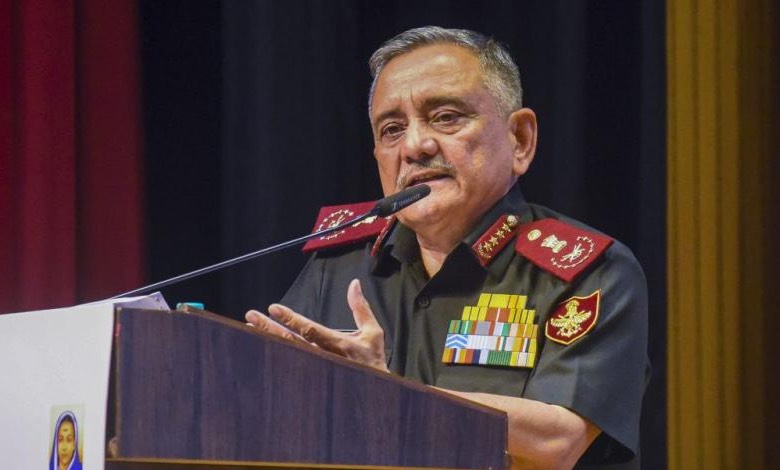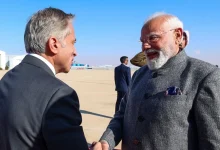
India’s Chief of Defence Staff (CDS), General Anil Chauhan, has disclosed that Pakistan was informed within five minutes of India launching a cross-border operation following the Pahalgam terror attack. Speaking during a special lecture titled “Future Wars and Warfare” at Savitribai Phule University in Pune, General Chauhan said, “We informed Pakistan on the same day May 7 shortly after conducting the strikes. The operation took place between 1 and 1:30 am, and they were notified just five minutes after it concluded.”
He emphasized that the Indian Army acted with restraint and precision, targeting only terrorist camps and deliberately avoiding civilian or military sites across the border. The cross-border strikes, code-named Operation Sindoor, were carried out in response to the killing of 26 people in a militant attack in Pahalgam, Jammu & Kashmir.
General Chauhan clarified that India had officially communicated to Pakistan’s Director General of Military Operations (DGMO) that the strikes were exclusively aimed at terrorist infrastructure. “We ensured there was no collateral damage, particularly to civilians,” he said.
Controversy Over Aircraft Loss Claims in Singapore Interview
Earlier, General Chauhan had faced public scrutiny after his comments during an interview with Bloomberg TV in Singapore, where he addressed reports of Indian aircraft being downed during the confrontation. He stated, “The real issue isn’t whether an aircraft was downed, but why it happened.” He dismissed Pakistani claims that six Indian jets were hit, sparking considerable discussion.
The Singapore interview drew mixed reactions. Some defense experts criticized the remarks, alleging they played into Pakistan’s narrative. The opposition Congress party also weighed in, demanding a special session of Parliament to address the situation and review India’s defense readiness.
Congress President Mallikarjun Kharge alleged on social media platform X that the Modi government had misled the country and demanded an independent expert committee to assess India’s defense preparedness. Strategic affairs analyst Brahma Chellaney echoed similar concerns, labeling the CDS’s comments as “poor diplomacy” and accusing the government of allowing Pakistan a propaganda victory by publicly acknowledging losses.
Chellaney argued such admissions should have been made within India, along with a proper disclosure of Pakistan’s damages. He added that the CDS’s remarks undermined Prime Minister Modi’s efforts to control the narrative around the conflict.
In contrast, defense expert C. Uday Bhaskar defended the CDS, calling his statements appropriate and strategic. “India suffered more in tactical than actual terms. The way we address such losses matters more,” he explained, citing earlier military briefings that had already acknowledged potential losses during the operation.
Debate Over Jaishankar’s Disclosure
External Affairs Minister S. Jaishankar also attracted criticism after revealing that India had informed Pakistan about the operation. Congress leader Pawan Khera mocked the statement during a press conference, saying it had become a source of global ridicule.
Following the backlash, the government’s Press Information Bureau (PIB) issued a clarification on social media, stating that Jaishankar’s remarks were being taken out of context and reaffirming that such claims had been previously debunked.
Responding to Rahul Gandhi’s criticism, BJP spokesperson C.R. Kesavan accused him of distorting facts and attempting to discredit the armed forces with misleading claims.
In a video shared online, Jaishankar is seen stating, “At the beginning of the operation, we messaged Pakistan, clarifying that our target was terrorist infrastructure and not military positions. We advised them to stay out of it. They chose not to heed the warning.”
Pakistan’s Operation Fails in Eight Hours
General Chauhan further revealed that Pakistan launched a retaliatory offensive named Operation Banyan-um-Marsus on May 10, intending to force India into submission within 48 hours. However, the mission failed within just eight hours.
“Pakistan had aimed to escalate the conflict and force India to its knees within two days,” he said. “They initiated multiple attacks, while we remained focused solely on terrorist sites. Their plan collapsed quickly, and they called us to initiate dialogue.”
General Chauhan concluded that the broader strategic outcomes of a military operation outweigh individual losses, emphasizing that India’s calculated approach helped contain the conflict and maintain control over the narrative.




